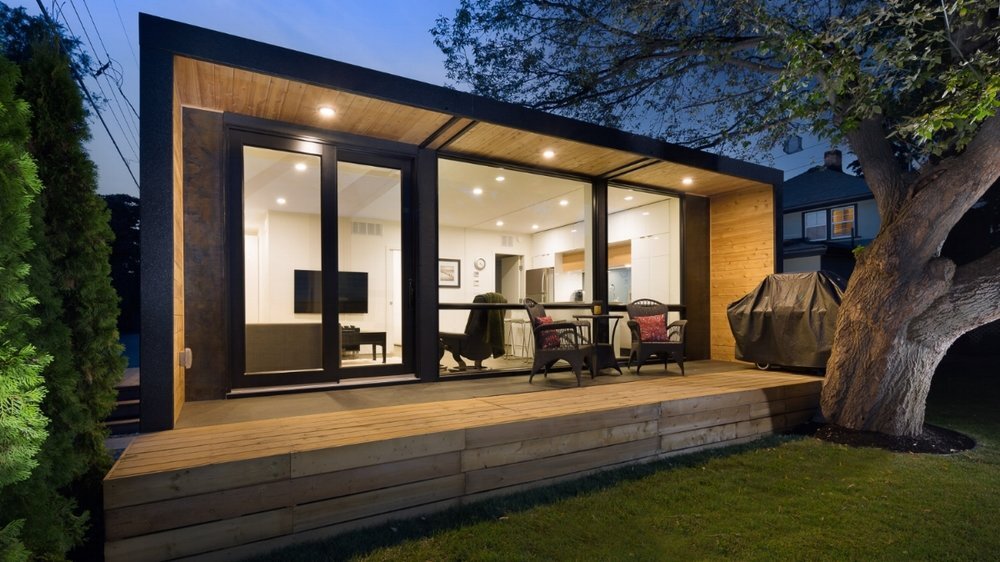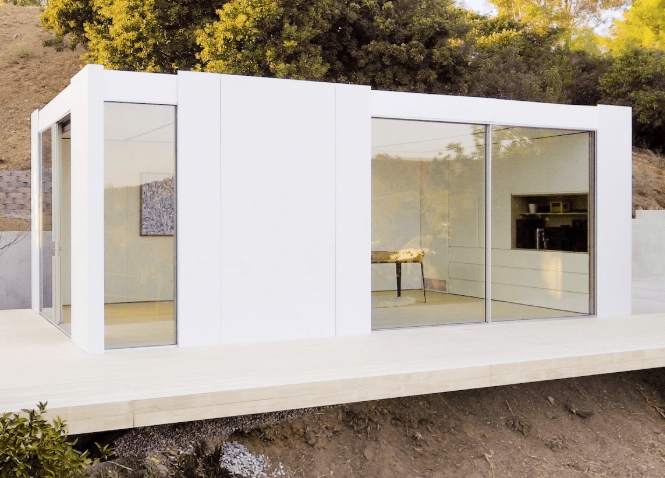Noah ADU Financing Review

How Do You Finance an ADU and Why Consider Noah?
ADUs, also known as auxillary dwelling units, granny flats, and in-law suites, have grown in popularity in recent years. Despite an increasing number of individuals turning to ADUs as a way of providing additional income, addressing housing scarcity, or simply allowing for expanded living space, ADU-specific financing options have been slow to catch-on.
While individuals can still finance an ADU project through traditional avenues such as home equity loans and lines of credit, or even cash, Noah offers an alternate, debt-free ADU financing option. With no monthly payments, lending amounts up to $350,000, and flexible borrower profiles, Noah’s financing options are an alternative option compared to traditional borrowing products for your ADU project. Below, we provide a full breakdown of our Noah review - including answers to questions like How does Noah work? How much does Noah cost? Is Noah a good financing option for me? And what other options exist for financing my ADU aside from Noah’s home equity sharing?
What is Noah?
Noah offers a debt-free alternative to traditional borrowing products such as home equity loans, home equity lines of credit, personal loans, and cash out refinances. It is worth noting that funds received from Noah are not considered home loans or a mortgage, but rather an investment agreement that allows users to access their equity in their home.
While funds borrowed from Noah can be used for an array of purposes from paying down debts to funding an education, we have found that Noah offers homeowners an opportunity to tap into their home equity and finance the construction of an ADU.
Below, our table of key characteristics outlines important information about Noah’s home equity-based lending product.
| Maximum Cash Amount | Maximum Borrowing Period | Service Area | Eligibility | Reviews* | |
|---|---|---|---|---|---|
| Noah | $350,000 (maximum offer is often 20% of your home’s value) | 10 Years | Select areas of CA, OR, WA, UT, CO (as of May, 2020) | - Combined property value (home + land) must be greater than $300,000 -Credit score of at least 625 |
4.5 Stars (as of May, 2020) |
*Reviews are based on prior customer reviews and sourced on May 1, 2020. Reviews are based on consumer reviews from Trustpilot
** (Accurate as of May, 2020)
How does borrowing from Noah work?
Noah allows individuals to receive money in exchange for a share of equity in the future value of an their home; the share of equity that Noah receives is related to factors like an individual’s borrower profile, the value of their home, and the amount borrowed. Over the period of borrowing (up to 10 years), individuals are responsible for repaying Noah the principal amount plus Noah’s share of appreciation. Or in the event that their home loses value over time, the amount borrowed minus Noah’s share of depreciation.
For example, if you were to borrow $50,000 in exchange for 20% equity and your home appreciates by $100,000, you would be responsible for repaying Noah $70,000 (principal amount, $50,000, + Noah’s share of appreciation, $20,000)
Two important, but lesser known traits of Noah’s home equity sharing product include an origination fee and risk-adjusted home values. When closing on your final financing application with Noah, they charge a one-time closing fee of $2,000 or 3% of the financing amount, whichever is greater. For example, if you were to finance with Noah for $200,000, you would be responsible for a $6,000 closing fee. This amount is automatically deducted from your investment from Noah.
Therefore, the actual amount of cash you would receive is $194,000.
A second characteristic of Noah’s product is risk-adjusted home amounts. Due to factors including neighborhood profile, funding costs, home sale characteristics, and variance in home appraisals, Noah applies a risk adjustment (typically 14 - 20%) to a home’s value. This risk adjusted home value is used to determine future values of appreciation and depreciation.
For example, a risk adjustment of 15% is applied to a home with an appraised value of
$1,000,000.
At the end of the contract, appreciation/depreciation is calculated from the risk-adjusted home value of $850,000.
Where Does Noah Serve?
At the moment, only borrowers in certain metropolitan areas are eligible to borrow from Noah. Noah’s service area includes select cities in California, Oregon, Washington, Colorado and Utah. Currently, borrowers located in San Jose, San Francisco, Santa Rosa, Santa Cruz, San Luis Obispo, Santa Barbara, San Diego, Los Angeles, West Riverside, Seattle, Tacoma, Vancouver, Denver, Boulder, Fort Collins, Colorado Springs, Portland, Salt Lake City, Provo, and Ogden may be eligible to borrow from Noah. (Accurate as of May, 2020)
Does Noah Have Good Reviews?
Because Noah is a new company with a unique business model, checking reviews from individuals who have previously borrowed from Noah is an important component in determining if Noah is right for you. At the time of publication, Noah has an average review of 4.5 out of 5 on Trustpilot.
How Does Noah Compare to Other ADU Lender Types?
Noah is unique from traditional lending products such as a home equity loan, home equity line of credit (HELOC), or reverse mortgage for a few reasons. First, unlike traditional loans or lines of credit, Noah does not have any monthly payments. In the example below, this would result in a monthly savings of over $2,400.
Second, Noah’s interests are aligned with the homeowner’s interests. In the event that your home increases in value over the period of borrowing, both you and Noah share the benefits. In the event that your home decreases in value, you share in the loss and your repayment amount is less.
Third, Noah does not have any requirements on how you must spend your money. Unlike a construction loan, money from Noah is available for use up-front. And unlike some home equity lines of credit, there are no restrictions on draw amounts.
What do the Economics of an ADU Project Financed with Noah Look Like?
| ADU Financing With Noah | Home Equity Loan | Home Equity Line of Credit | Notes | ||
|---|---|---|---|---|---|
| Appreciation | Depreciation | ||||
| Current Home Value | $1,000,000 | $1,000,000 | $1,000,000 | $1,000,000 | |
| Noah Adjusted Home Value | $900,000 | $900,000 | Noah calculates appreciation and depreciation from an adjusted home value. Appreciation scenario assumes 3% annual appreciation | ||
| Future Home Value | $1,568,916 | $1,120,000 | Including added value from an ADU +/- market change. Assumes 3% annual growth | ||
| Home Value Change | $568,916 | $120,000 | |||
| ADU Project Cost/ Amount Borrowed | $225,000 | $225,000 | $225,000 | $225,000 | |
| Interest rate | 0% | 0% | 6.25% | 5.25% | |
| Interest Payments | $0 | $0 | $78,156 | $64,688 | Calculated using an amount borrowed of $225,000 for a period of 10 years |
| Noah's Share of Appreciation/ Depreciation | $199,121 | $42,000 | Noah's equity in your home's future value is dependent on your individual profile, though it is typically between 15%-40%. In this case we use 35% as an estimate | ||
| Noah Origination Fee | $6,750 | $6,750 | $7,875 | $7,875 | Noah charges a one-time servicing fee of $2,000 or 3% of the financing amount, whichever is greater |
| While some banks may waive certain fees, typical fees and costs from a bank can be 2%-5% of the loan amount. In this case estimate fees at 3.5% | |||||
| Total Repayment Amount | $430,871 | $273,750 | $311,031 | $297,563 | At the end of the 10-year term |
Besides Noah, How Else Can I Finance an ADU Project?
While the most straight-forward way to finance a new ADU is with cash, that option is not practical for most individuals. Other ways to finance an ADU build include: home equity loan, home equity line of credit, cash-out refinancing, or construction loan.
In addition to Noah, other companies that offer alternatives to traditional lending products include:
Similar to Noah, these companies allow borrowers to access and trade a share of their equity in their home’s future value for cash. Read a side-by-side comparison of these home-equity share companies here.




